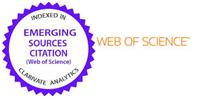Saberes antiguos para problemas modernos: melancolía y filosofía moral en los ensayos de William Temple
Resumen
Palabras clave
Texto completo:
PDFReferencias
Fuentes primarias
BACON, F. (1861 [1605]). Of the proficience and advancement of learning. Londres. Bell & Daldy.
BENTLEY, R. (1697). A Dissertation upon the Epistles of Phalaris. En WOTTON, W. Reflections Upon Ancient and Modern Learning (2º ed.). Londres. P. Buck.
BOYLE, C. (1698). Dr. Bentley's Dissertations on the Epistles of Phalaris, and the fables of Æsop, examin’d. Londres. T. Bennet.
BURNET, T. (1726). The Sacred Theory of the Earth: Containing an Account of the Original of the Earth, and of All the General Changes Which It Hath Already Undergone, or Is to Undergo, till the Consummation of All Things. Vol. 1. Londres. John Hooke.
CASAUBON, M. (1655). A Treatise Concerning Enthusiasme, As it is an Effect of Nature: but is mistaken by many for either Divine Inspiration, or Diabolical Possession. Londres. R. D.
CHEYNE, G. (1733). The English Malady: or, A treatise of nervous diseases of all kinds, as spleen, vapours, lowness of spirits, hypochondriacal, and hysterical distempers, &c. Londres. Strahan.
COLLIER, J. (1697). Essays upon several Moral Subjects. In two parts. The second edition corrected and much enlarged. Londres. Sare.
COLLIER, J. (1732). Essays Upon Several Moral Subjects. In Two Parts. Londres. J. Knapton.
CUDWORTH, R. (1678). The True Intellectual System of the Universe: The First Part; wherein All the Reason and Philosophy of Atheism is Confuted; and Its Impossibility Demonstrated. Londres. Richard Royston.
FONTENELLE, B. (1708 [1688]). Digression sur les anciens et les modernes. En Poésies pastorales, avec un Traité sur la nature de l’églogue, et une digression sur les anciens et les modernes. París. M. Brunet.
GIFFARD, M. (1728). The Life and Character of Sir William Temple, Bart.. Londres. B. Motte.
MORE, H. (1662 [1656]). Enthusiasmus Triumphatus; or A Brief Discourse of The Nature, Causes, Kinds, and Cure of Enthusiasm. Londres. J. Flesher.
SWIFT, J. (1704). A Tale of a Tub. Written for the Universal Improvement of Mankind. To Which is Added An Account of a Battel Between the Ancient and Modern Books in St. Jame’s Library. Londres. J. Nutt.
TEMPLE, W. (1705). Observations Upon the United Provinces of the Netherlands. Londres. J. Tonson.
TEMPLE, W. (1720). Upon the Gardens of Epicurus; or, Of Gardening in the Year 1685. En The Works of Sir William TEMPLE, Bart., In two volumes, vol. I. Londres. A. Churchill.
TEMPLE, W. (1770a). An Essay Upon the Cure of the Gout by Moxa. En Works of Sir William TEMPLE, Bart., vol. III. (pp. 238-265). Londres. J. Brotherton.
TEMPLE, W. (1770b). On Health and Long Life. En Works of Sir William TEMPLE, Bart., vol. III. (pp. 266-303). Londres. J. Brotherton.
TEMPLE, W. (1770c). Of Poetry. En Works of Sir William TEMPLE, Bart., vol. III. (pp. 394-429). Londres. J. Brotherton.
TEMPLE, W. (1770d). An Essay Upon the Ancient and Modern Learning. En Works of Sir William TEMPLE, Bart., vol. III. (pp. 430-470). Londres. J. Brotherton.
TEMPLE, W. (1770e). Some Thoughts Upon Reviewing the Essay of Ancient and Modern Learning. En Works of Sir William TEMPLE, Bart., vol. III. (pp. 471-501). Londres. J. Brotherton.
TEMPLE, W. (1770f). Letter to the Countess of Essex upon her Grief, occasioned by the Loss of her only Daughter. En Works of Sir William TEMPLE, Bart., vol. III. (pp. 502-513). Londres. J. Brotherton.
WESLEY, J. (2013 [1747]). Primitive Physic: Or, An Easy and Natural Method of Curing Most Diseases. Bristol. New Rooms.
WOTTON, W. (1694). Reflections Upon Ancient and Modern Learning. Londres. P. Buck.
Fuentes secundarias
ÁLVAREZ SOLÍS, A. O. (2015). La república de la melancolía. Política y subjetividad en el barroco. Buenos Aires. La Cebra.
BARON, H. (1959). “The Querelle of the Ancients and the Moderns as a Problem for Renaissance Scholarship”, Journal of the History of Ideas, 20.1, pp. 3-22.
BLACK, R. (1982). “Ancients and Moderns in the Renaissance: Rhetoric and History in Accolti’s Dialogue on the Preeminence of Men of his Own Time”, Journal of the History of Ideas, 43.1, pp. 3-32.
BURLINGAME, E. (1920). The Battle of the Books in Its Historical Setting. Nueva York. B. W. Huebsch, inc.
BURY, J. B. (1920). The Idea of Progress: An Inquiry into Its Origin and Growth. Londres. Macmillan.
COOK, H. J. (1994). “Good Advice and Little Medicine: The Professional Authority of Early Modern English Physicians”, Journal of British Studies, 33.1, pp. 1-31.
COURTENAY, T. P. (1836). Memoirs of the Life, Works, and Correspondence of Sir William TEMPLE, Bart.. 2 vols. Londres. Longman, Rees, Orme, Brown, Green, & Longman.
DAVIES J. D. (2009). “Temple, Sir William, baronet (1628-1699)”, Oxford Dictionary of National Biography, Oxford. Oxford University Press.
http://www.oxforddnb.com/view/article/27122 Fecha de consulta: 21 de enero de 2015.
DEAR, P. (1985). “Totius in Verba: Rhetoric and Authority in the Early Royal Society”, Isis, 76.2, pp. 144-161.
DEJEAN, J. (1997). Ancients Against Moderns: Culture Wars and the Making of a Fin de Siecle. Chicago. University of Chicago Press.
DOUGHTY, O. (1926). “The English Malady of the Eighteenth Century”, The Review of English Studies, 2.7, pp. 257-269.
FOSTER JONES, R. (1961 [1936]). Ancients and Moderns: A Study of the Rise of the Scientific Movement in 17th Century England. St. Louis. Washington University Press.
FOUCAULT, M. (2006). Seguridad, territorio, población. Buenos Aires. Fondo de Cultura Económica.
FUMAROLI, M. (2001). Les abeilles et les araignées. En LECOQ, A. M. La querelle des anciens et des modernes: XVIIe-XVIIIe siècles. París. Gallimard.
FRASER, A. (1979). Royal Charles. Charles II and the Restoration. Nueva York. Alfred A. Knopf.
FREUD, S. (1981). Duelo y melancolía. En Obras completas. Tomo II (pp. 2091-2100). Madrid. Biblioteca Nueva.
GATTINONI, A. (2016). “Vientos de cambio: melancolía y modernidad en la obra de Jonathan Swift”, Eadem Utraque Europa, 12.17, pp. 109-140.
GATTINONI, A. [en prensa]. “Prólogo”. En COLLIER, J. Del spleen y otros ensayos, Buenos Aires. Centro de Investigaciones Filosóficas.
GIDAL, E. (2003). “Civic Melancholy: English Gloom and French Enlightenment”, Eighteenth-Century Studies, 37.1, pp. 23-45.
GILLOT, H. (1914). La querelle des anciens & des modernes en France. De la «Defense et illustration de la langue française» aux «Parallèles des anciens et des modernes». París. Librairie ancienne Honoré Champion.
GREAVES, R. L. (2010). “Capel, Arthur, first earl of Essex (bap. 1632, d. 1683)”, Oxford Dictionary of National Biography, Oxford. Oxford University Press. http://www.oxforddnb.com/view/article/4584 Fecha de consulta: 13 de abril de 2016.
GREENBLATT, S. (2011). The Swerve. How the World Became Modern. Nueva York/Londres. W. W. Norton & Company.
GUERRINI, A. (1999). Obesity and Depression in the Enlightenment. The Life and Times of George Cheyne. Norman. The University of Oklahoma Press.
HARIMAN, R. (ed.) (2003). Prudence. Classical Virtue, Postmodern Practice. University Park. Pennsylvania State University Press.
HARTH, P. (1961). Swift and Anglican Rationalism: The Religious Background of A Tale of a Tub. Chicago. University of Chicago Press.
HARTOG, F. (2005). Anciens, Modernes, Sauvages. París. Galaade.
HAZARD, P. (1961). La crise de la conscience européenne, 1680-1715. París. Fayard.
HEYD, M. (1995). “Be Sober and Reasonable“. The Critique of Enthusiasm in the Seventeenth and Early Eighteenth Centuries. Leiden. E. J. Brill.
HINTZ, C. (2005). An Audience of One: Dorothy Osborne’s Letters to Sir William TEMPLE, 1652-1654. Toronto. Univesity of Toronto Press.
HOPES, J. (2011). “‘La Maladie anglaise’ in French Eighteenth-Century Writing: From Stereotype to Individuation”, Studies in Literary Imagination, 44.2, pp. 109-132.
JACKSON, S. W. (1986). Melancholia and Depression: From Hippocratic Times to Modern Times. New Haven. Yale University Press.
JARDINE, L. (2015). Temptation in the Archives. Essays in Golden Age Dutch Culture. Londres. University College London Press.
JEWSON, N. D. (1974). “Medical Knowledge and the Patronage System in 18th Century England”, Sociology, 8.3, pp. 369-385.
KLEIN, L. (1994). Shaftesbury and the Culture of Politeness. Moral Discourse and Cultural Politics in Early Eighteenth-Century England. Cambridge. Cambridge University Press.
KOSELLECK, R. (1993). Futuro pasado. Para una semántica de los tiempos históricos. Barcelona. Paidós.
KUITERT, W. (2013). “Japanese Robes, Sharawadgi, and the Landscape Discourse of Sir William TEMPLE and Constantijn Huygens”, Garden History, 41.2, pp. 157-176.
KUITERT, W. (2014). “Japanese Art, Aesthetics, and a European Discourse: Unraveling Sharawadgi”, Japan Review, 27, pp. 77-101.
KWIATKOWSKI, N. (2009). Historia, progreso y ciencia. Textos e imágenes en Inglaterra, 1580-1640. Buenos Aires. Miño y Dávila.
LABORIE, L. (2015). Enlightening Enthusiasm: Prophecy and Religious Experience in Early Eighteenth-Century England. Oxford. Oxford University Press.
LEVINE, J. (1981). “Ancients and Moderns Reconsidered”. Eighteenth-Century Studies 15.1, pp. 72–89.
LEVINE, J. (1991). The Battle of the Books: History and Literature in the Augustan Age. Ithaca. Cornell University Press.
LEVINE, J. (1999). Between the Ancients and Moderns: Baroque Culture in Restoration England. New Haven. Yale University Press.
MADDEN, D. (2007). “A Cheap, Safe and Natural Medicine”. Religion, Medicine and Culture in John Wesley’s Primitive Physic. Nueva York. Rodopi.
MARAVALL, J. A. (1986 [1966]). Antiguos y Modernos. Visión de la historia e idea de progreso hasta el Renacimiento. Madrid. Alianza.
MARGIOTTA, G. (1953). Le origini italiane de la querelle des anciens et des modernes. Roma. Editrice Studium.
MICHEL, W. (2005). “Far Eastern Medicine in Seventeenth and Early Eighteenth Century Germany”, Studies in Languages and Cultures, 20, pp. 67-82.
NORMAN, L. F. (2011). The Shock of the Ancient: Literature and History in Early Modern France. Chicago. University of Chicago Press.
PASINI, M. (1981). Thomas Burnet. Una storia del mondo tra ragione, mito e rivelazione. Florencia. La Nuova Italia.
PATEY, D. L. (2005). Ancients and Moderns. En NISBET, H. B. y RAWSON, C. (eds.). The Cambridge History of Literary Criticism: Volume 4, The Eighteenth Century. Cambridge, Cambridge University Press.
POCOCK, J. G. A. (1975). The Machiavellian Moment: Florentine Political Thought and the Atlantic Republican Tradition. Princeton. Princeton University Press.
PORTER, R. (1985). Laymen, Doctors, and Medical Knowledge in the Eighteenth Century: The Evidence of the Gentleman’s Magazine. En PORTER, R. (ed.). Patients and Practitioners. Lay Perceptions of Medicine in Pre-Industrial Society. (pp. 283-314). Cambridge. Cambridge University Press.
PORTER, R. y ROUSSEAU, G. S. (1998). Gout: The Patrician Malady. New Haven. Yale University Press.
RIGAULT, H. (1856). Histoire de la Querelle des Anciens et des Modernes. París. Hachette.
SCHMIDT, J. (2007). Melancholy and the Care of the Soul. Religion, Moral Philosophy and Madness in Early Modern England. Hampshire. Ashgate.
SHAPIN, S. y SCHAFFER, S. (2005). El Leviathan y la bomba de vacío. Hobbes, Boyle y la vida experimental. Bernal. Universidad Nacional de Quilmes.
SKINNER, Q (2002). Visions of Politics. Volumen I: Regarding Method. Cambridge. Cambridge University Press.
TINKLER, J. F. (1988). “The Splitting of Humanism: Bentley, Swift, and the English Battle of the Books”. Journal of the History of Ideas. 49.3, pp. 453-472.
VERARDI, J. (2013). Tiempo histórico, capitalismo y modernidad. La experiencia inglesa en la modernidad temprana. Buenos Aires. Miño y Dávila.
WILLIAMSON, G. (1933). “The Restoration Revolt against Enthusiasm”. Studies in Philology, 30.4, pp. 571-603.
Enlaces refback
- No hay ningún enlace refback.
Copyright (c) 2017 Magallánica : revista de historia moderna

Este obra está bajo una licencia de Creative Commons Reconocimiento-NoComercial-CompartirIgual 4.0 Internacional.
 | Magallánica : Revista de Historia Moderna es editada por el Grupo de Investigación en Historia de Europa Moderna de la Facultad de Humanidades de la Universidad Nacional de Mar del Plata y por la Red de Historia Moderna ISSN 2422-779X (en línea)
|
La Dirección no se responsabiliza por las opiniones vertidas en los artículos firmados. | |
Resultados de evaluación: Magallánica... es evaluada por:
Magallánica...se encuentra en las siguientes bases de datos:
Miembro de:
| |


























